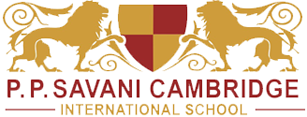Date: 11th & 12th July 2023
Trainers: Ms. Sharon and Ms. Shivangi
Hosted by: HVB Global Academy, Marine Lines
The training conducted by the Cambridge Early Years Programme (CEYP), focused on key pedagogies, principles, and attributes. The training aimed to equip educators with the necessary knowledge and skills to effectively support early childhood development and education. Participants included teachers, administrators, and other professionals working in early years settings.
Key Pedagogies
The training emphasised the following key pedagogies:
- Play-Based Learning: CEYP highlighted the significance of play-based learning in early childhood education. Participants were introduced to various play-based strategies that fostered exploration, creativity, and problem-solving skills among children. The training emphasised the role of the teacher as a facilitator in guiding and extending children’s play experiences.
- Inquiry-Based Learning: CEYP promoted inquiry-based learning as an effective approach to engage children’s natural curiosity and encourage active participation in the learning process. Participants learned how to create learning environments that stimulated questioning, investigation, and critical thinking skills.
- Child-Centred Approach: The training underscored the importance of a child-centred approach, focusing on each child’s unique interests, strengths, and developmental needs. Educators were encouraged to design learning experiences that catered to individual differences, ensuring inclusive and holistic development.
Principles
CEYP training emphasised the following principles as the foundation of effective early childhood education:
- Holistic Development: The training emphasised the importance of addressing children’s cognitive, physical, social, emotional, and creative development through a comprehensive approach. Educators were encouraged to create learning experiences that nurtured all aspects of a child’s growth.
- Continuity and Progression: CEYP highlighted the significance of providing a seamless transition for children from home to early years settings and subsequent educational stages. Participants explored strategies to ensure continuity and progression in learning, building upon children’s prior knowledge and experiences.
- Partnership with Families: Recognizing the crucial role of families in a child’s education, the training promoted the establishment of strong partnerships between educators and families. Participants learned effective communication strategies and techniques to involve families in their children’s learning journey.
Attributes
The CEYP training emphasised the development of the following attributes.
a.Responsible:
- Innovative
c.Confident
d.Engaged
e.Reflective
Differentiation Strategies:
The Cambridge Early Years Programme recognizes the diverse needs and abilities of young learners and emphasises the importance of differentiated learning. Differentiation refers to tailoring teaching methods, activities, and resources to accommodate the individual needs, interests, and learning styles of each child.
Conclusion
The training conducted by the Cambridge Early Years Programme provided valuable insights into key pedagogies, principles, and attributes in early childhood education. By emphasising play-based and inquiry-based learning, a child-centred approach, and principles such as holistic development and partnership with families, the training aimed to empower educators with the necessary tools to create effective learning environments. The focus on attributes such as creativity, resilience, collaboration, critical thinking, and cultural competence further enriched the training experience. Participants left the training equipped with new knowledge and strategies to enhance their practice and positively impact the lives of young children in their care.
